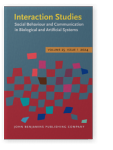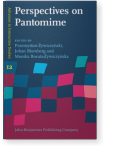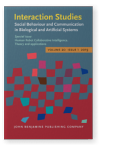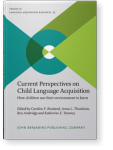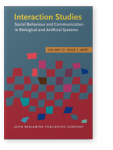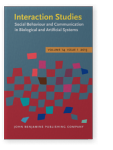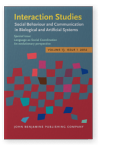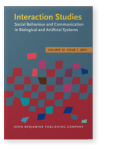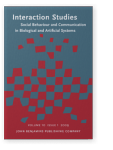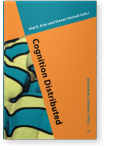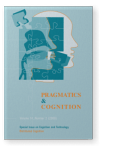Angelo Cangelosi
List of John Benjamins publications for which Angelo Cangelosi plays a role.
Journal
Book series
Title
Human Robot Collaborative Intelligence: Theory and applications
Edited by Chenguang Yang, Xiaofeng Liu, Junpei Zhong and Angelo Cangelosi
Special issue of Interaction Studies 20:1 (2019) vi, 204 pp.
Subjects Artificial Intelligence | Cognition and language | Evolution of language | Interaction Studies
Articles
2020 Heads, shoulders, knees and toes: What developmental robotics can tell us about language acquisition Current Perspectives on Child Language Acquisition: How children use their environment to learn, Rowland, Caroline F., Anna L. Theakston, Ben Ambridge and Katherine E. Twomey (eds.), pp. 39–64 | Chapter
Decades of research have brought us a long way in understanding the many factors that affect language acquisition. However, while a wealth of empirical studies have characterised children’s language learning behaviours, from pre-speech to syntax, until relatively recently researchers have been… read more
2019 Temporal patterns in multi-modal social interaction between elderly users and service robot Human Robot Collaborative Intelligence: Theory and applications, Yang, Chenguang, Xiaofeng Liu, Junpei Zhong and Angelo Cangelosi (eds.), pp. 4–24 | Article
Social interaction, especially for older people living alone is a challenge currently facing human-robot interaction (HRI). There has been little research on user preference towards HRI interfaces. In this paper, we took both objective observations and participants’ opinions into account in… read more
2019 Human robot collaborative intelligence: Theory and applications Human Robot Collaborative Intelligence: Theory and applications, Yang, Chenguang, Xiaofeng Liu, Junpei Zhong and Angelo Cangelosi (eds.), pp. 1–3 | Editorial
2016 Children’s referent selection and word learning: Insights from a developmental robotic system Interaction Studies 17:1, pp. 101–127 | Article
It is well-established that toddlers can correctly select a novel referent from an ambiguous array in response to a novel label. There is also a growing consensus that robust word learning requires repeated label-object encounters. However, the effect of the context in which a novel object is… read more
2013 Progress on evolution of communication and interaction studies Interaction Studies 14:1, pp. 1–6 | Article
2012 Progress on evolution of communication and Interaction Studies Language as Social Coordination: An evolutionary perspective, Raczaszek-Leonardi, Joanna and Stephen J. Cowley (eds.), pp. vii–xvi | Article
2011 Cross-situational and supervised learning in the emergence of communication Interaction Studies 12:1, pp. 119–133 | Article
Scenarios for the emergence or bootstrap of a lexicon involve the repeated interaction between at least two agents who must reach a consensus on how to name N objects using H words. Here we consider minimal models of two types of learning algorithms: cross-situational learning, in which the… read more
2009 Editorial on Evolution of Communication Interaction Studies 10:1, pp. 1–4 | Article
2008 The grounding and sharing of symbols Cognition Distributed: How cognitive technology extends our minds, Dror, Itiel E. and Stevan Harnad (eds.), pp. 83–92 | Article
The double function of language, as a social/communicative means, and as an individual/ cognitive capability, derives from its fundamental property that allows us to internally re-represent the world we live in. This is possible through the mechanism of symbol grounding, i.e., the ability to… read more
2006 The grounding and sharing of symbols Distributed Cognition, Harnad, Stevan and Itiel E. Dror (eds.), pp. 275–285 | Article
The double function of language, as a social/communicative means, and as an individual/cognitive capability, derives from its fundamental property that allows us to internally re-represent the world we live in. This is possible through the mechanism of symbol grounding, i.e., the ability to… read more
2001 The adaptive advantage of symbolic theft over sensorimotor toil: Grounding language in perceptual categories The Evolution of Grounded Communication, Steels, Luc (ed.), pp. 117–142 | Article
